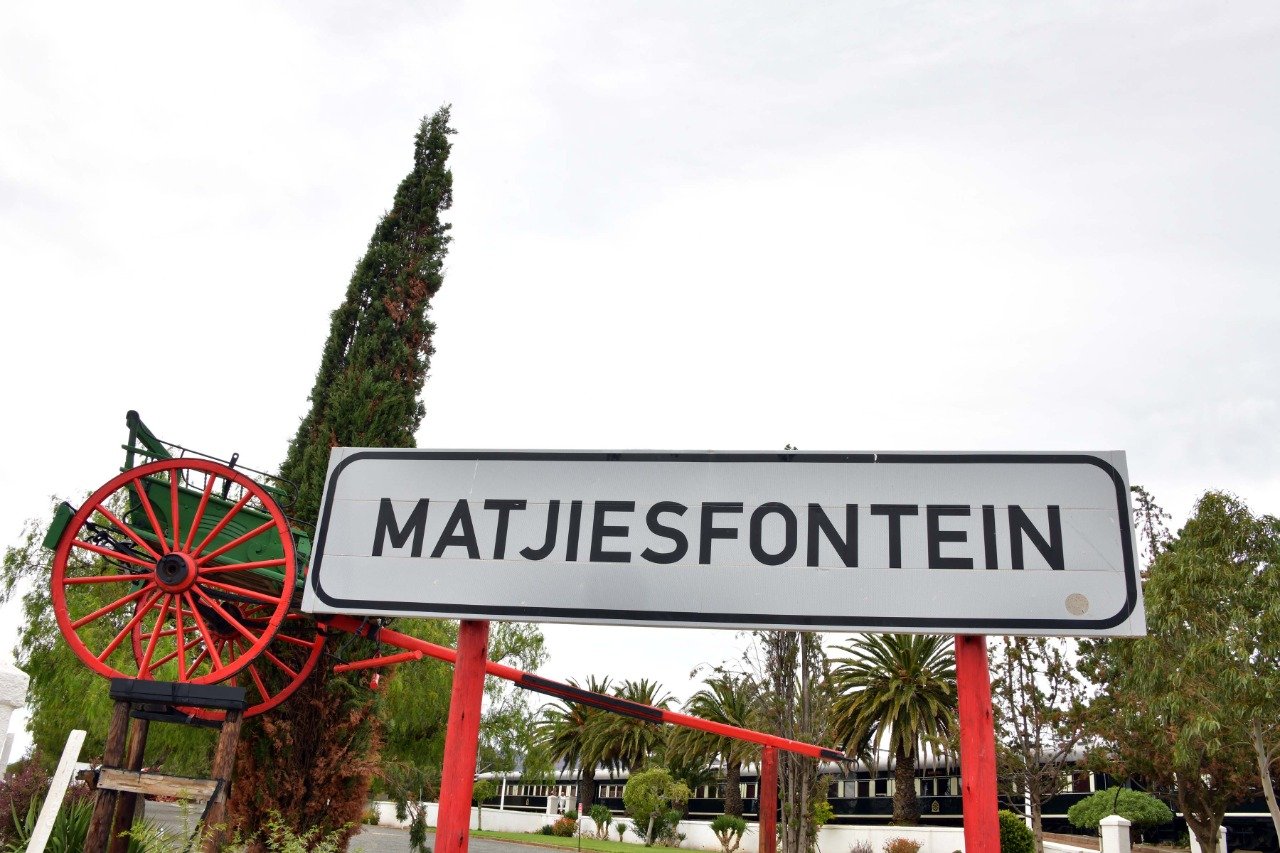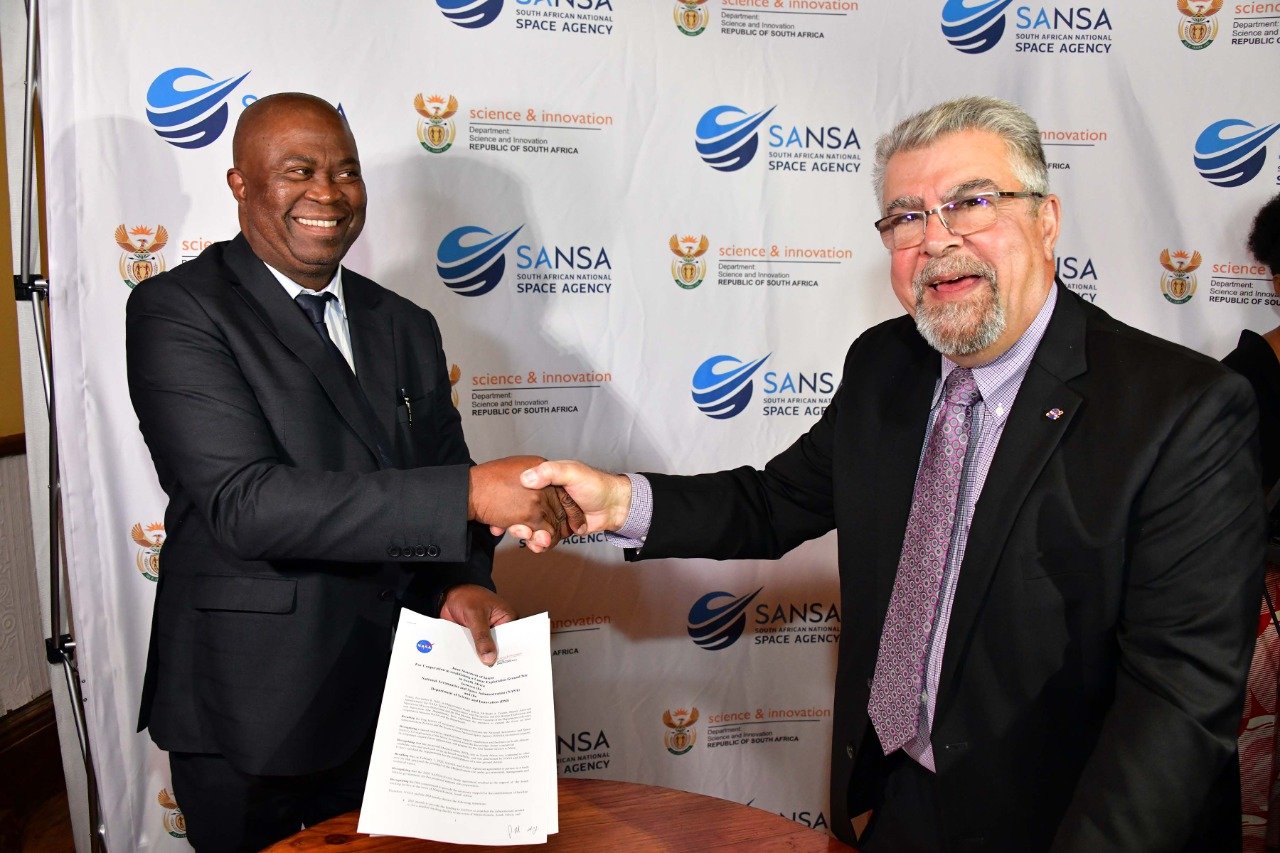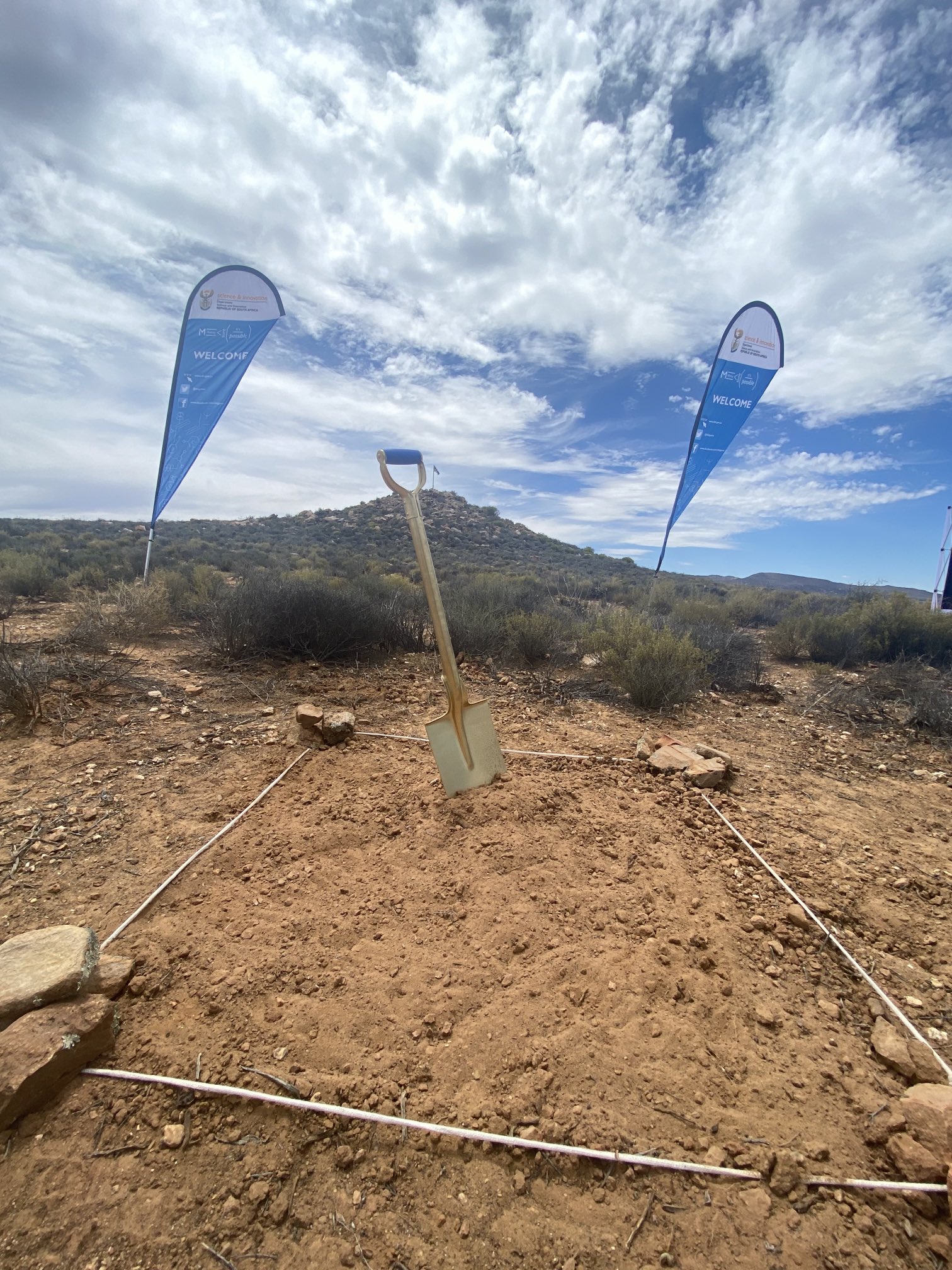
08 Nov South Africa/ NASA Renew Lunar Exploration Partnership

DG DSI, Dr Mjwara and NASA’s Badri Younes sign the letter of intent to commence with construction of a LEGS antenna
NASA and the South African National Space Agency (SANSA) renewed their partnership in lunar exploration with the groundbreaking of a new communications facility that will help the Artemis missions return humans to the Moon.
Badri Younes, Deputy Associate Administrator for NASA’s Space Communications and Navigation (SCaN) program, joined with SANSA officials on Tuesday, November 8 in Matjiesfontein (MIKE-eese-fon-tane), or MTJ, South Africa, for a groundbreaking at the future site of a new Lunar Exploration Ground Sites (LEGS) antenna.
The ceremony was preceded by the signing of a Letter of Intent between NASA and the South African Department of Science and Innovation to formalise the space exploration partnership. Located approximately 240 kilometers (150 miles) northeast of Cape Town, MTJ will be one of three, 18- to 24-meter, communications LEGS antennas strategically placed around the globe to ensure near-continuous connectivity between astronauts on NASA’s Artemis spacecraft and those who’ll subsequently come to work on and around the lunar surface.
“Location, weather and existing infrastructure make Matjiesfontein the ideal place to build this antenna,” said Younes. ”We really couldn’t have asked for a better spot on Earth than here in South Africa, with whom we first partnered six decades ago to land the first humans on the lunar surface.”
South Africa was home to a ground tracking station outside Johannesburg at Hartebeesthoek (HBK) that played a critical role in NASA’s Apollo missions in the 1960s. Artemis, named for Apollo’s sister, will land the first woman and person of color on the Moon, paving the way for a long-term lunar presence, and serving as a steppingstone to send astronauts to Mars.
“We see this partnership as mutually beneficial,” said Dr. Phil Mjwara, DSI Director General. “Matjiesfontein ground station will alleviate increased demand for NASA’s Deep Space Network (DSN), allowinfg Artemis to meet its goals and expand our scientific knowledge of key challenges to astronaut health and safety, such as space radiation, altered gravity fields, isolation and confinement, closed environments, and extreme and prolonged distance from Earth.”
MTJ will join future LEGS facilities at NASA’s White Sands Complex in Las Cruces, New Mexico and a still-to-be-determined location in Australia. With a LEGS station in North America, South Africa, and Australia, the Moon will always be in Earth’s view to ensure essential, enhanced direct-to-Earth communications capabilities up to two million kilometers away through NASA’s Near Space Network (NSN).
“We are pleased that this project has reached a significant milestone with the support of the Department of Science and Innovation as well as the partnership of NASA,” said Tiaan Strydom SANSA acting Commercial Services Executive.
“Matjiesfontien ground station extends SANSA space capabilities and specialization, taking the agency a notch higher as a global player in space science and technology.”
Added SCaN’s Younes, “The Moon brought NASA and South Africa together 60 years ago. I’m so pleased it’s done so again today.”
For enquiries, please contact Veronica Mohapeloa at 083 400 5750 or veronica.mohapeloa@dst.gov.za or SANSA Communication on 081 508 7485




